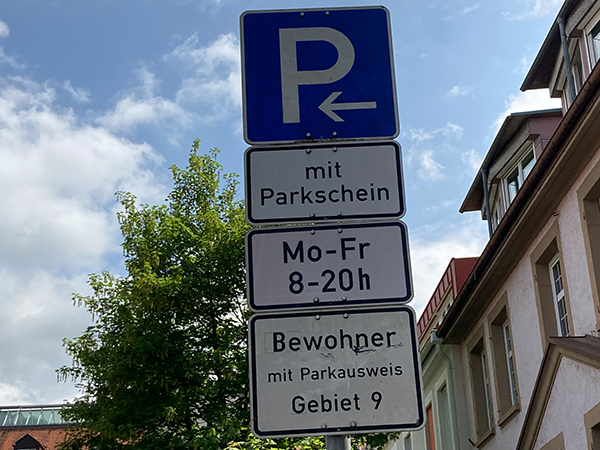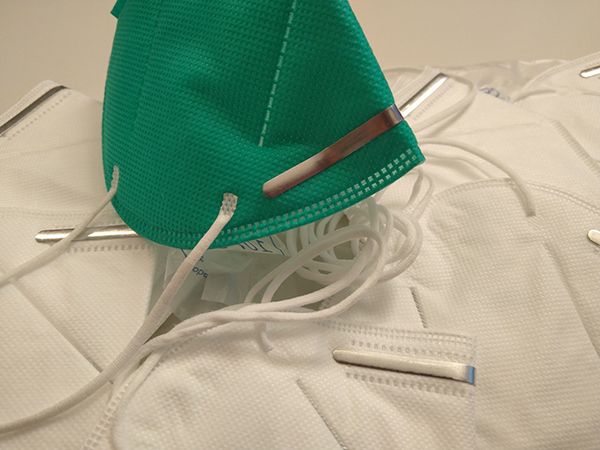In Germany, you are not allowed to park your car everywhere. The road traffic regulations stipulate various stopping and parking bans. Parking is always permitted on the right-hand side of the road, and on the left-hand side only if it is a one-way street. In the case of a restricted no-parking zone, you are not allowed to park, but you may stop for up to three minutes.
Where exactly is parking prohibited?
Regardless of the signs, parking in the second row is prohibited – the fine is at least 55 euros. If cyclists or other road users are obstructed, it can be even more expensive. If you park on a narrow street or in a sharp curve, you risk a 35 euro fine. You may only stop or park on sidewalks if it is expressly permitted by markings or signs—otherwise it costs 55 euros in fines. Only the owner or tenant may park at a property entrance. If the curb is lowered, owners may not park either, because the lowering is to make it easier for people with wheelchairs to cross the street. Parking in front of a lowered curb costs 10 euros.
Those who park at bus stops and railroad crossings also risk a fine. The distance must be at least 15 meters from the bus stop sign and 10 meters for railroad crossings. You must also keep a distance of 10 meters from traffic lights, and 5 meters from other signs in built-up areas and 50 meters outside built-up areas. A distance of at least 5 meters applies in front of and behind intersections, junctions and crosswalks. If there is a bike lane on the right side of the road, the distance should be 8 meters.
Stopping and parking on bike paths and bike lanes is generally prohibited and is punishable by a fine of 55 euros. If parking spaces are marked on the right, parking on the right side is allowed.
What special rules are there?
In Tübingen’s city center and in some parts of the city, the city administration has designated areas where only residents are allowed to park free of charge. They must obtain a resident parking permit and pay a flat fee. All other motorists must buy a parking ticket from a ticket machine. In some areas, non-resident drivers are not allowed to park at all at certain times. The zones are indicated by signs, and the ticket machine provides information about the parking fees. Such regulations also exist in many other cities.
What happens if you park wrong?
On the one hand, you can receive a fine. If you park in a no-parking zone, you have to pay 25 euros if you get caught; if you park for more than an hour, it costs 40 euros. At an expired parking meter, 20 euros are due for the first half hour, then it becomes more expensive. If the vehicle obstructs other motorists or pedestrians, it can even be towed away. This then costs 100 to 200 euros for the towing service and an additional fee for parking the vehicle on the premises. On top of that comes the parking ticket.
How is the fine to be paid?
Anyone who finds a parking ticket on their windshield can pay the fine directly. Those who wait for the fine notice will receive an official letter. Payment can be made at a bank, post office or via online banking. Those who deposit the money must have their passport and driver’s license with them. The receipt must be kept. Otherwise, a notice of payment due will be issued, making it more expensive. Anyone who fails to pay a fine and leaves Germany will face problems the next time he or she enters the country: He or she may enter Germany or another EU country only if the fine is paid.
Further information and the current amount of the fines can be found here:
https://www.adac.de/verkehr/recht/verkehrsvorschriften-deutschland/parken/
tun23052402
Falsches Parken kann teuer werden. Foto: tünews INTERNATIONAL / Ute Kaiser.
002009




